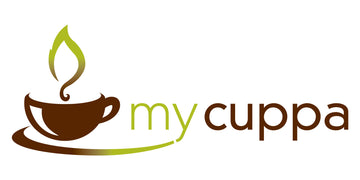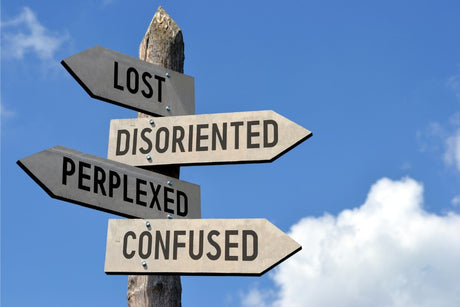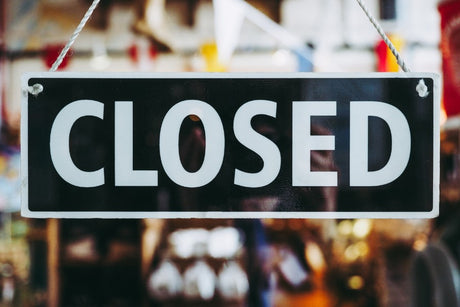We often have customers contacting us asking for discounts.
"Where is my voucher code?" they demand with a sense of entitlement.
Or we see variations upon a similar theme in emails declaring, "I'm a new customer; give me a discount code".
This would be great if we lived in a wonderland with $55/kg coffee, but at MyCuppa, we don't charge those prices.
Let me put this into perspective without alienating or offending.
mycuppa.com.au is an everyday low-price offering.
This is pretty simple.
We have worked out our lowest price and then pray it will be sufficient to cover us moving forward.
In reality, it's never been as dynamic as it should be - often, we are so busy roasting, packing and sending out orders to stop and review whether we are "tracking ok" commercially.
Coffee prices change daily.
Yep, that's right, folks, the cost of our raw ingredients will be different tomorrow compared to today.
One thing we don't do is play pricing games with our coffees across various customer segments.
It's the same price whether you buy 500g or 50 kilos.
We don't run multi-price strategies, nor do we depend upon who you are, e.g. a cafe or wholesaler, or what amount you spend or where you spend it.
Other companies may covertly exist in a happy realm of "pricing what they can get away with" for transactional customers.
That behaviour happens in many different industries - it also occurs in coffee, but not here.
Discounting is a marketing tool - it's not a default or obligatory part of any merchant's offering unless they deliberately use misleading practices for their retail pricing by inflating the price.
Unfortunately, many industries and markets across Australia engage in the corrupt practice of inflating retail prices.
One example that comes to mind is the way bedding is sold at a constant 50% off for the entire year, which is a ridiculous approach.
However, I won't go into naming and shaming other industries that engage in this practice.
Discounting is a tool companies use for many purposes, such as clearing excess or seasonal inventory, promoting a new product, brand or offering, or a brand might resort to discounting when they are lazy, bored, tired, stale and in dire need of reinvigoration.
Depending on a company's product range, it can be a smart tactic to cross-promote sales across a wider portfolio.
For instance, many big supermarkets have used deliberate $1 milk offers to entice customers into the store more often to encourage them to purchase additional higher-margin items.
This is known as a balancing-based pricing strategy or portfolio pricing. Less here and more there.
Discounting may also be used to improve last-minute yields - such as seats on flights, events or vacant hotel rooms or to overtly attract or steal customers from competitors on the premise that longer-term revenues will flow and hopefully compensate the short-term margin pressures from discounting.
Often, discounting is the primary sales strategy for contracted or lock-in arrangements such as energy or telco plans where the lifecycle spends are not insignificant and upfront incentives are easily absorbed.
The Australian retail environment has been binging for too long on fake discount hysteria - some estimate it to have existed for more than a generation.
Mass adoption of discounting by retailers can blind a customer from dissecting value or skew their perceptions of whether something is a decent deal or, in fact, value for money.
Discounting also sets an expectation (or assumption) that similar behaviours are available from every retailer if pushed, which is rarely true and risks insulting the merchant.
Look at what happens when you threaten the bank because another lender has a cheaper rate - they either have to match or beat it to retain your custom.
Walking through any shopping centre, you will not spot a store without a Sale sign or something to "hook you in".
Mostly, only the leaders (or price makers) in a category can escape from such practices - e.g. Apple, Dyson, etc.
A problem with persistent discount strategies is that customers outsmart retailers by only spending on discounted items.
The retailer ends up in a financial mess and blames high rents or difficult landlords (does the story sound familiar ?).
All our suppliers increase their prices - at least annually, or some do it more often based upon economic conditions such as the price of oil, market indexes, AUD/USD currency or because it's just their standard way of doing business to cover for CPI adjustments and manage the stealth of creeping price deflation.
Sometimes, there are no real justifications for our suppliers raising prices, but they do it anyway.
Our business landscape consists of constant energy costs rising - gas has tripled in the last three years.
Rents have doubled from the shortage of industrial estates, compliance costs have quadrupled, insurance has doubled, labour is up 30%, and logistics and shipping have doubled with surging fuel.
Even packaging nudged up +40%, risk and fraud up 300% and the painful reality of marketing up an eye-watering 600% because of the Google monopoly.
Another unreported high cost is the hole blown in our operating model from freight incidents.
Freight and shipping issues continue to rise and cause us daily problems.
We stand behind the value we offer and run programs like Secret Label at incredible discounts to the prevailing market for comparable quality coffees.
It's a low-key approach that is more effective and sustainable in the longer term - delivering a trusted value proposition to our customers every day, not just on a sale day.
Companies relying on discounting to stabilize their market share or acting recklessly in haphazardly pursuing growth and sacrificing their fundamental operating margins are on a slippery slope to the bottom.
Alarmingly, people addicted to discounting are unwittingly playing someone else's game.
Discounters will always look for ways to cut costs to preserve their margins - when faced with something that tastes nice or is cheaper, they always choose the lowest price and think nothing of sacrificing the real opportunities to achieve product excellence.
This acceptance of mediocrity sees discounters cut corners in every part of their operation: packaging.
In these long-run production cycles, the coffee is roasted to stock and not as fresh as it could or should be, with sub-standard storage methods and reduced service or support.
They justify behaviour with "what do you expect at those prices ?".
Discounters are here to take your money today and only care a little about tomorrow.
We continue to invest in the most advanced roasting plant's best operational facilities, and we carefully manage the process variables to ensure we achieve the highest possible qualities - a stark contrast to the philosophies of rampant and reckless discounters.
Our input costs continue to rise faster than our selling price.
This is a common margin squeeze, and adjustments are inevitable.









